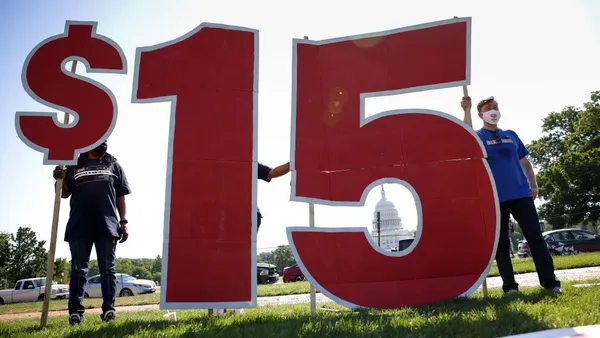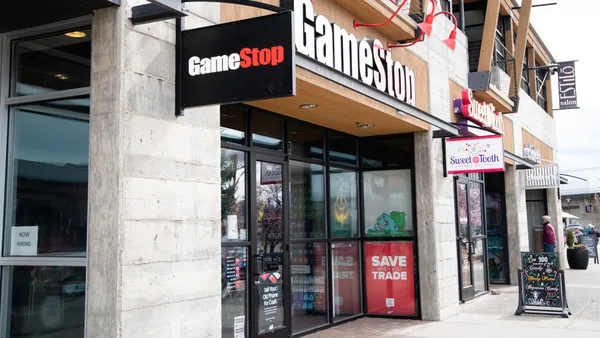Dive Brief:
-
A group of low-wage workers in Kansas City who work in fast-food franchises, daycare centers and home healthcare providers are trying to drive home the message that raising the minimum wage is about more than higher wages, according to the Kansas City Star.
-
Columnist Mary Sanchez lays out their case, writing that the "career gripes of the average middle-class woman don’t hold a candle to what these ladies face daily." She ticks off a laundry list of the challenges they face every day in the workplace, including sexual harassment and being hassled by an employer who balked when one of the women's children had to be hospitalized.
- As Sanchez points out, the data makes a strong case. For example, according to the National Women's Law Center, women represent 66% of the nearly 20 million low-wage workers (less than $10.10 an hour) in America. Sanchez cites a 2014 study from the center found that women in such positions, working full time, have a 13% wage gap with men — even higher for minority women.
Dive Insight:
To Sanchez, the situation needs fixing because if it continues, its impact could hurt the nation's economic future and family stability. She adds that low-wage jobs are leading the way in the post-recession economy in terms of job growth, and it comes as no surprise to know that restaurant (and retail) sectors, for example, rank at the bottom when it comes to employee benefits.
Apart from the pervasive, well-documented sexual harassment (and the significant odds in battling them via proper channels in low wage jobs), one of the women Sanchez interviewed made the case that raising wages and ensuring regular schedules, a serious issue for low wage jobs, would ultimately benefit everyone.
Some cities and states, such as San Francisco with its retail workers bill of rights, are trying to improve the lot of low-wage workers. Also, wage boosts at larger employers are on the upswing and the impact has not caused the predicted economic chaos in cities such as Seattle, for example. For HR leaders in these traditionally low-paid industries, it's about keeping attrition low and the recruiting brand positive.









